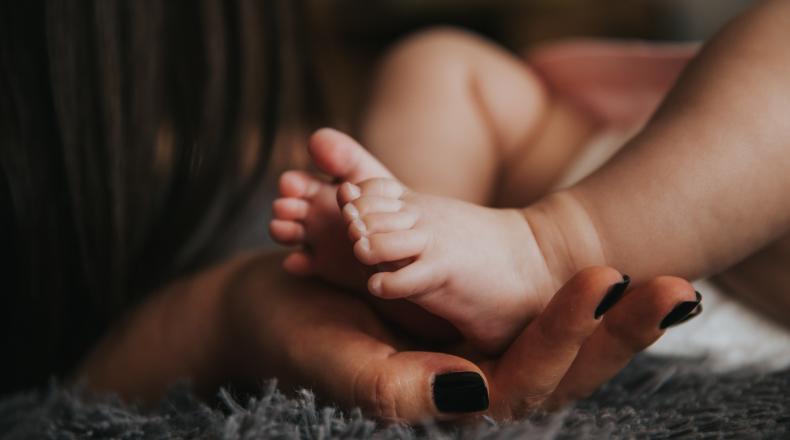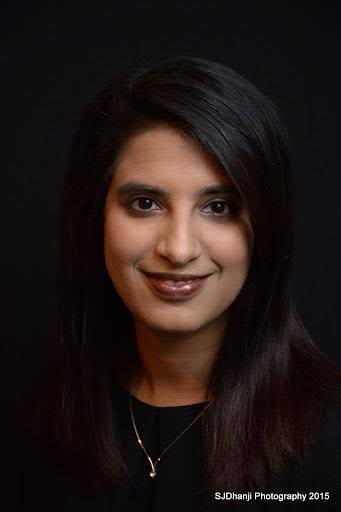Falling into Fundraising Part 2: Motherhood and the Mental Health Load


Last year, AFP member Danisha Bhaloo-Shivji, CFRE, manager of development and communications form Boys & Girls Clubs Big Brothers Big Sisters of Edmonton & Area, began a series of interviews we called Falling into Fundraising. Danisha interviewed women who are Black, Indigenous, or persons of color to talk about their “unintentional” careers as fundraisers, what we can do to showcase the profession as a viable, intentional career choice, and how to increase the number of BIPOC women in the profession. You can read about part 1 of the Falling into Fundraising series here, as well as video interviews here and here, and a panel discussion on the issues here.
Danisha is now starting part 2 of her series with this column.
Here we go again. When we started the first series of Falling into Fundraising last summer, sharing stories of racialized fundraisers around the world who identified as women, I never expected the depth of differences—as well as one glaring similarity amongst my peers. Regardless of what stage of career you were at, every single woman interviewed “fell” into fundraising. Their dream as an eight-year-old was not to be a fundraiser when they grew up. Many didn’t even know what fundraising or philanthropy even meant.
But what isn’t spoken about outwardly in our profession is the various barriers that those identifying as women come across, especially when you’re a racialized fundraiser. Add in the idea of motherhood or parenthood, and you have an added complexity to what might seem like a simple career choice.
I am a racialized woman fundraiser. There were times in my career where donors didn’t take me seriously when I asked for money, regardless of the cause. But, there were other times where being who I am allowed me to open doors to a whole new set of prospective donors who may not have been tapped in the past – racialized women who wanted to make a difference but didn’t know how.
I am also a mother to a two-year-old beautiful girl. Before I had her, my life centered around my career. I was working often 10-12 hours a day, willingly, to meet goals and timelines and be able to think strategically about the social impact sector. When I wasn’t working, I was volunteering for other organizations and causes that I cared about. My life centered around social impact and philanthropy. I could never imagine how my life and priorities would change after becoming a mother.
The articles and interviews that will come in phase 2 of this series are not meant to answer questions of women or caregiver fundraisers who might be sure unsure of what to do in any given parenting and work situation. Instead, they are meant to bring camaraderie and comfort amongst our peers who may be dealing with similar challenges, knowing our intersections are unique. I hope you will find yourself reading or listening and say to yourself, “Oh, I’m not the only one feeling this way” or “Women and caregivers in my profession are also going through this.”
I had a very complicated pregnancy. In my second trimester, I was in the hospital for a week with a gall bladder attack. It was the first time in my career where I wasn’t able to be “plugged in” to my work. The five months in the remainder of my pregnancy came with a lot of whirlwind emotions, fatigue and mental health challenges.
Post-partum was not any easier. I learned that I had been living with anxiety that was exacerbated during my pregnancy and post-partum. I was told that I’d have to put my mental health first if I wanted to be any kind of good mother to my child. This also meant learning to balance and prioritize my family over my work. This was not an easy task for me, as I characterized myself proudly as a “work-a-holic” (I’m not sure why I was proud of it, but I was).
The last two years have meant taking a step back from my work, while still feeling like I’ve been making a difference. I have been so grateful to have a supportive boss and colleagues who understood and encouraged my journey as a mother and made sure that I wasn’t overwhelmed at any given time. One example is that I moved to a city three hours away where my husband, child and I built a home. And my boss, a female nonprofit leader, provided me the flexibility to work remotely, even before COVID hit. This, of course, was based on years of trust and accountability between us.
A global pandemic, of course, didn’t help anyone’s situation. But in a way, it forced all of us to be flexible in our work environments and take care of our mental health first if we wanted to be any kind of good worker, fundraiser, philanthropist, donor or community leader.
Being a fundraiser, in my opinion, has provided me with a caring work environment, often filled with women who have the same pressures and barriers, and have a sense of patience and understanding that might not exist in the corporate world. It has provided me with flexibility—focusing on outcomes and deliverables rather then a nine-to-five day.
But most importantly, no matter what my job or role—whether as a grants writer, an events planner, or a giving officer—being in a helping profession means I get to help in whatever way I can. That’s the reward for me. Knowing that I’m leaving the world a better place for my child, and other children, then it was before.
I am a racialized woman. And I am a mother. But I am also a proud fundraiser who loves my career. I’ve had to learn that my career might look differently moving forward while I balance my family priorities. And it’s taken awhile, but I’ve accepted that. Now, I am excited about what the future holds—for me, yes, but also for the next generation of girls and young women who need to know that this is a viable profession for them.
If you’d like to be interviewed by Danisha for part 2 of the Falling into Fundraising series, email Taryn Gold at Taryn.Gold@afpglobal.org.

